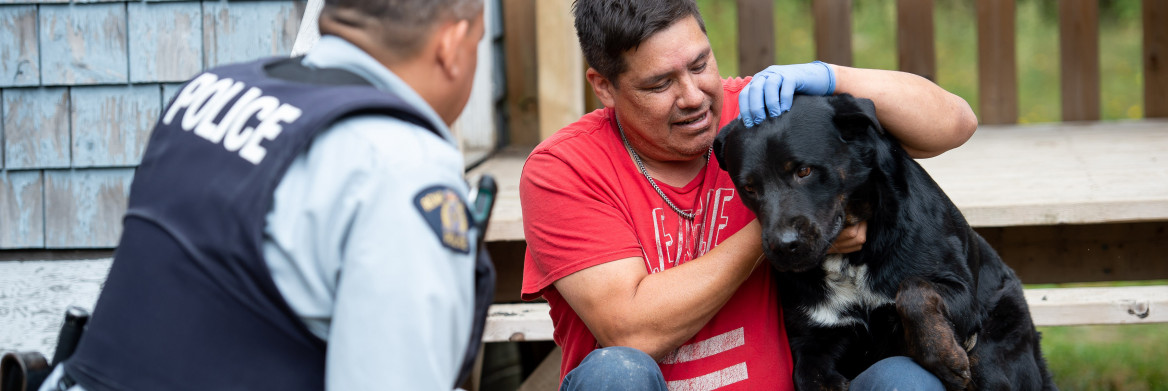At the RCMP's Elsipogtog detachment in New Brunswick, an eagle feather rests on top of a dresser in Sgt. Bill Collier's office. Receiving one is the highest honour among Indigenous people.
The eagle feather is Collier's third overall, but the first for the unique way he and other RCMP officers at the detachment are policing the reserve.
An agreement between the community, the province and the RCMP means all parties provide input on community policing matters, including determining the band's priorities. Officers regularly meet with the band chief, council and a group of elders, and participate in Indigenous activities together.
"If you don't have trust, you don't have anything,
" says Collier about the detachment's approach to policing the band of more than 3,000 First Nations residents.
Candid conversations are helping the groups better understand each other's differences and improve relationships, which help both community living and law enforcement.
Understanding differences
Collier says regular communication diffuses mistrust and resentment that can develop when people don't have a clear understanding of the police process. Educating the community about it is as much a part of policing as kicking in doors, he says.
For Cst. Vanessa DeMerchant and her detachment colleagues, that open approach included participating in healing circles in Elsipogtog.
At the beginning, officers were asked not to bring their guns as a sign of respect, and they complied. But that changed after the 2014 and 2018 shootings in Moncton and Fredericton. Now, DeMerchant says they wear their guns without damaging the trust they've developed with residents.
"Sharing with them what police work looks like, they understand us more,
" says DeMerchant. "It's nice to have that open communication with people.
"
Being involved in the band's judicial process is another reason Elsipogtog detachment officers are well respected in the community.
DeMerchant says officers attend sentencing circles, an Indigenous version of a sentencing hearing, which include the offender, members of the community, Crown counsel, police and the judge. Participants sit in a circle each taking turns telling the offender how their actions have affected them or others in the community. The judge considers all statements before sentencing and the approach is meant to help heal the offender rather than only hand down a punishment.
"Attending these circles gives people a relationship with us,
" says DeMerchant. "It shows them that we follow through. We don't just abandon them.
"
The detachment — which is made up of 13 police officers and two public service employees — has adjusted some of its own approaches to policing to be more mindful of the culture.
After learning that wearing their hats was considered a sign of intimidation and disrespect to band residents, who are predominantly Mi'kmaq, officers stopped wearing them on the reserve, according to Cst. Boyd Milliea, who grew up in the community.
Common language
Milliea's been using his native language to improve relationships between First Nations people and the police since he worked his first reserve in 2000. When interacting with people he thinks may be Indigenous, he begins the conversation in Mi'kmaq and switches to English only if the other person initiates.
"It's a trust issue. Language tends to be a barrier,
" says Milliea, who speaks fluent Mi'kmaq, the main language used on the Elsipogtog reserve. "Somehow that tends to calm the situation down.
"
As a child, Milliea saw his father struggle to understand the local police officers who spoke in a thick French accent, which led to a strained relationship. But it was his first positive interaction with band police that set in motion his future career in the RCMP.
"They were driving by and I called them pigs. They stopped and reversed and started talking to me in my language,
" says Milliea. "After that, I thought if I worked around the reserve and talked to people the way they did to me, maybe interactions wouldn't be as bad.
"
